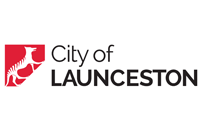Value added by industry is an indicator of business productivity in the City of Launceston. It shows how productive each industry sector is at increasing the value of its inputs. It is a more refined measure of the productivity of an industry sector than output (total gross revenue), as some industries have high levels of output but require large amounts of input expenditure to achieve that.
By comparing the value added of each industry sector to a regional benchmark, you can clearly see the structure of the City of Launceston’s economy. This can be done by directly comparing the percentage contribution of each industry to the total output, relative to the benchmark, or by using a location quotient, where a number greater than one indicates a high concentration of that industry and less than one indicates a lower concentration.
To see what contribution each industry makes to the state or region, see the Industry sector analysissection. To understand the value of a worker in each industry, view this dataset in conjunction with Worker productivity data, and to see the relationship of value added to the total size of the economy, go to the Gross Regional Product section.
Detailed notes about how the figures are derived can be found in the specific topic notes section.
Data source
National Economics (NIEIR) - Modelled series
Current benchmark:
Comparison year:
| Value added by industry sector | |||||||||
|---|---|---|---|---|---|---|---|---|---|
| City of Launceston | 2023/24 | 2018/19 | Change | ||||||
| Industry | $m | % | Tasmania | $m | % | Tasmania | 2018/19 - 2023/24 | ||
| Agriculture, Forestry and Fishing | 144.6 | 2.6 | 10.4 | 138.6 | 2.9 | 9.2 | +5.9 | ||
| Mining | 113.6 | 2.1 | 4.9 | 75.8 | 1.6 | 4.7 | +37.8 | ||
| Manufacturing | 253.6 | 4.6 | 5.5 | 368.3 | 7.6 | 7.8 | -114.7 | ||
| Electricity, Gas, Water and Waste Services | 116.8 | 2.1 | 2.8 | 122.1 | 2.5 | 3.3 | -5.4 | ||
| Construction | 331.0 | 6.0 | 8.5 | 291.8 | 6.1 | 8.8 | +39.2 | ||
| Wholesale Trade | 207.4 | 3.7 | 2.8 | 223.6 | 4.6 | 3.1 | -16.3 | ||
| Retail Trade | 364.3 | 6.6 | 5.2 | 352.3 | 7.3 | 5.8 | +12.0 | ||
| Accommodation and Food Services | 137.9 | 2.5 | 2.8 | 136.6 | 2.8 | 3.1 | +1.3 | ||
| Transport, Postal and Warehousing | 401.1 | 7.2 | 5.7 | 249.2 | 5.2 | 5.4 | +151.9 | ||
| Information Media and Telecommunications | 255.1 | 4.6 | 3.2 | 184.6 | 3.8 | 2.9 | +70.5 | ||
| Financial and Insurance Services | 608.1 | 11.0 | 5.8 | 553.1 | 11.5 | 6.2 | +55.0 | ||
| Rental, Hiring and Real Estate Services | 122.4 | 2.2 | 2.0 | 105.1 | 2.2 | 2.0 | +17.3 | ||
| Professional, Scientific and Technical Services | 202.6 | 3.7 | 3.8 | 176.8 | 3.7 | 3.7 | +25.8 | ||
| Administrative and Support Services | 131.9 | 2.4 | 2.1 | 101.2 | 2.1 | 2.1 | +30.6 | ||
| Public Administration and Safety | 305.0 | 5.5 | 7.7 | 247.2 | 5.1 | 7.3 | +57.8 | ||
| Education and Training | 408.2 | 7.4 | 6.8 | 396.8 | 8.2 | 6.8 | +11.4 | ||
| Health Care and Social Assistance | 1,249.9 | 22.6 | 16.7 | 929.7 | 19.3 | 14.8 | +320.2 | ||
| Arts and Recreation Services | 38.4 | 0.7 | 1.2 | 32.5 | 0.7 | 1.1 | +6.0 | ||
| Other Services | 142.7 | 2.6 | 2.1 | 133.7 | 2.8 | 2.0 | +9.0 | ||
| Total industries | 5,534.5 | 100.0 | 100.0 | 4,819.0 | 100.0 | 100.0 | +715.5 | ||
Source: National Institute of Economic and Industry Research (NIEIR) ©2025. Compiled and presented in economy.id by .id (informed decisions). Note: All $ values are expressed in 2022/23 base year dollar terms. NIEIR-ID data are adjusted each year, using updated employment estimates. Each release may change previous years’ figures. Learn more Please refer to specific data notes for more information | |||||||||


Dominant groups
An analysis of the valued added by industry sectors in the City of Launceston in 2023/24 shows the three largest industries were:
- Health Care and Social Assistance (1,250 million or 22.6%)
- Financial and Insurance Services (608 million or 11.0%)
- Education and Training (408 million or 7.4%)
In combination these three industries accounted for 2,266 million in total or 40.9% of the total value added by industry in the the City of Launceston.
In comparison, the same 3 industries in Tasmania accounted for 16.7% in Health Care and Social Assistance; 5.8% in Financial and Insurance Services and 6.8% in Education and Training.
The major differences between the value added by industries of the City of Launceston and Tasmania were:
- A smaller percentage of value added by Agriculture, Forestry and Fishing (2.6% compared to 10.4%)
- A larger percentage of value added by Health Care and Social Assistance (22.6% compared to 16.7%)
- A larger percentage of value added by Financial and Insurance Services (11.0% compared to 5.8%)
- A smaller percentage of value added by Mining (2.1% compared to 4.9%)
Emerging groups
The total value added by industry in the City of Launceston $increased by 716 million between 2018/19 and 2023/24.
The largest changes in the value added by industries between 2018/19 and 2023/24 in the City of Launceston were for:
- Health Care and Social Assistance (+$320 million)
- Transport, Postal and Warehousing (+$152 million)
- Information Media and Telecommunications (+$71 million)
- Public Administration and Safety (+$58 million)
